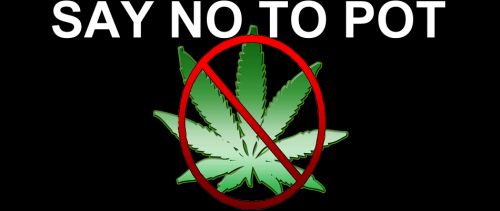By Trevor Fik (Staff Writer) – Email
 With an increasingly sluggish economy failing to make as much headway out of the recession as Canadians might be content with, politicians and activists alike are looking for new ways to raise revenue in a desolate economic wasteland. Many pundits point to the legalization and taxation of marijuana as a means to gain revenue. The question remains however, in the increasingly tolerant, pro-legalization atmosphere of Canada’s marijuana scene, is the grass always greener on the other side?
With an increasingly sluggish economy failing to make as much headway out of the recession as Canadians might be content with, politicians and activists alike are looking for new ways to raise revenue in a desolate economic wasteland. Many pundits point to the legalization and taxation of marijuana as a means to gain revenue. The question remains however, in the increasingly tolerant, pro-legalization atmosphere of Canada’s marijuana scene, is the grass always greener on the other side?
The negative aspects to marijuana use and abuse are obvious, and with legalization these undesirable qualities will manifest themselves into something much greater than what we are currently facing. Potential users, many of whom only resist trying marijuana for fear of breaking the law, will face little resistance in their quest to get high.
This will result in an increase in marijuana use in the population, leading to a further growth in the physical and mental problems that plague many chronic marijuana users.
The National Institute of Drug Abuse reports that marijuana can have serious effects on the mental health of the user, including increased instances of depression, anxiety, and cases of schizophrenia. This is on top of the negative physical effects related to increase in heart rate, chronic bronchitis, lung cancer, and blood vessel blockage.
The costs to an already failing healthcare system would be astronomical if marijuana were to be legalized, and these negative effects are not outweighed by the appeasement of a relatively small social group.
Many who condone the legalization of marijuana advocate for it under the banner that pushing the drug underground serves to fuel an already burgeoning organized crime movement. In this scenario illegal marijuana is likened to alcohol during prohibition in the 1920’s, which inevitable gave rise to organized crime in the United States.
What this point fails to realize is that gangs, like any business, will find a solution to the problem that increased availability to marijuana poses. With a sudden decrease in police resources dedicated to criminalizing marijuana use and trafficking, organized crime members will be free to transport their product within Canada and worldwide.
With the United States taking a firm stance on the legalization of marijuana, organized crime will only shift to serve an ever growing consumer market down south.
The argument is often put forth that marijuana serves as a gateway drug for those too intimidated to experiment with harder drugs. While not thoroughly tested on such a grand scale as an entire country legalizing the product, do we, as Canadians, really want to take a chance and find out if this theory is true? The magnitude of large scale hard drug use as a result of increased soft drug use would be detrimental to society on an unprecedented scale.
While talk of marijuana legalization is usually steeped in discussion of the social harms of using the drug, where many promoters of pro-legalization fall short in their bid for a pro-pot society is in discussion of the morality of legalizing marijuana. What we as a society say when we legalize something is that it is right to do. Keeping all of the above points in mind, how can you turn to a child and tell them, despite the physical, mental, and potential societal harms of allowing an increased use in marijuana, that it is ok?
While taxation and government sale of marijuana may be a short term fix to Canada’s current economic trouble, the long term consequences of engaging in the legalization of marijuana will be detrimental for generations to come.


